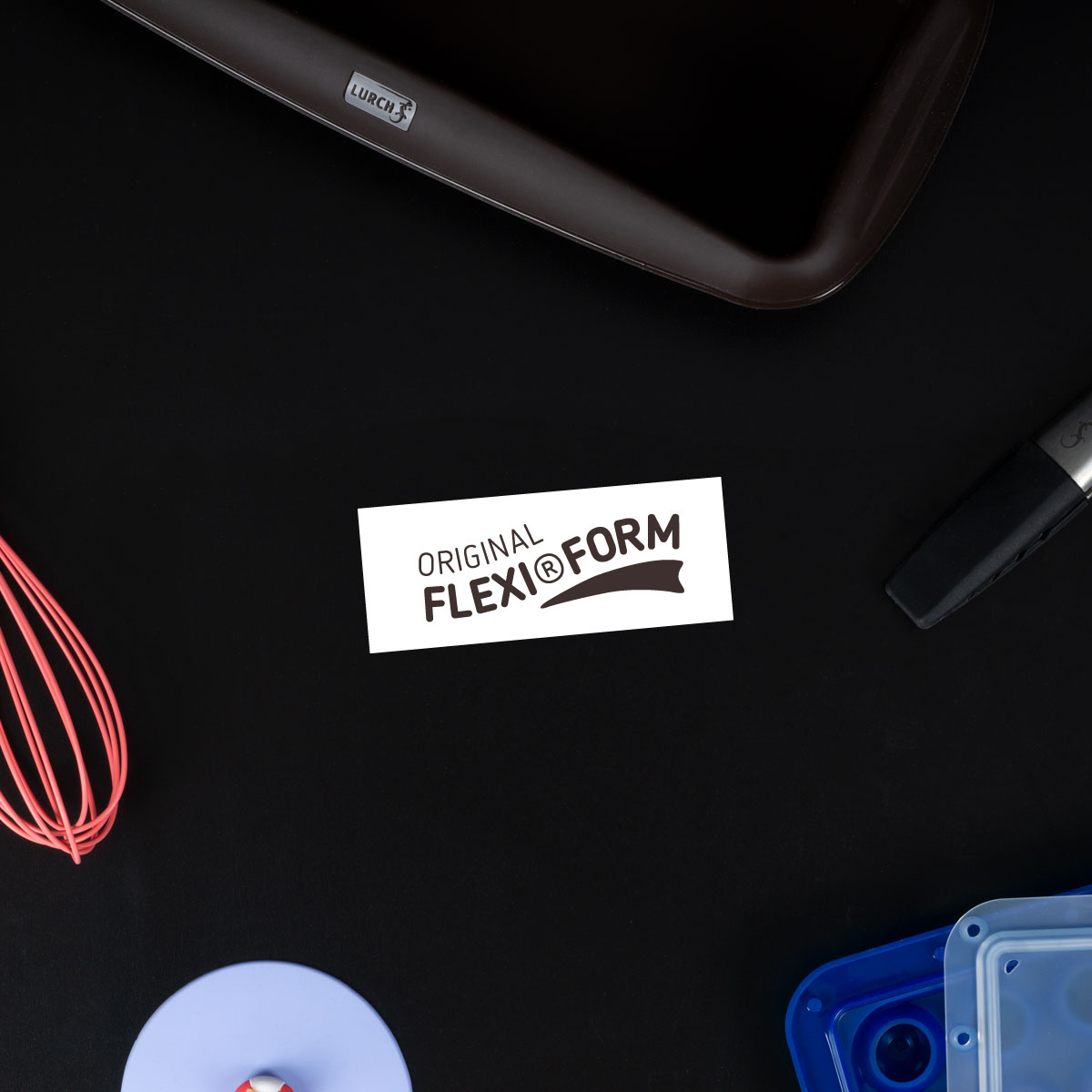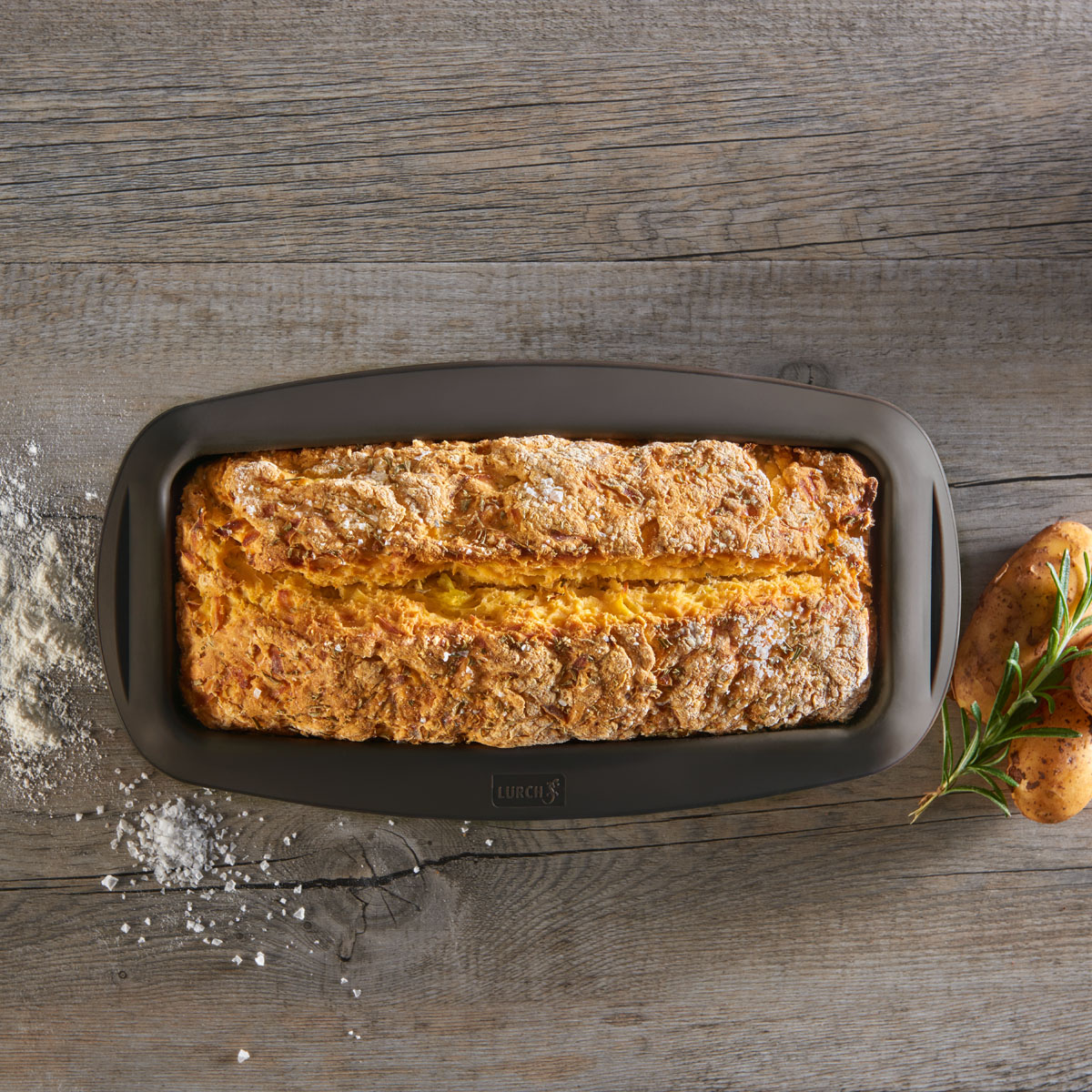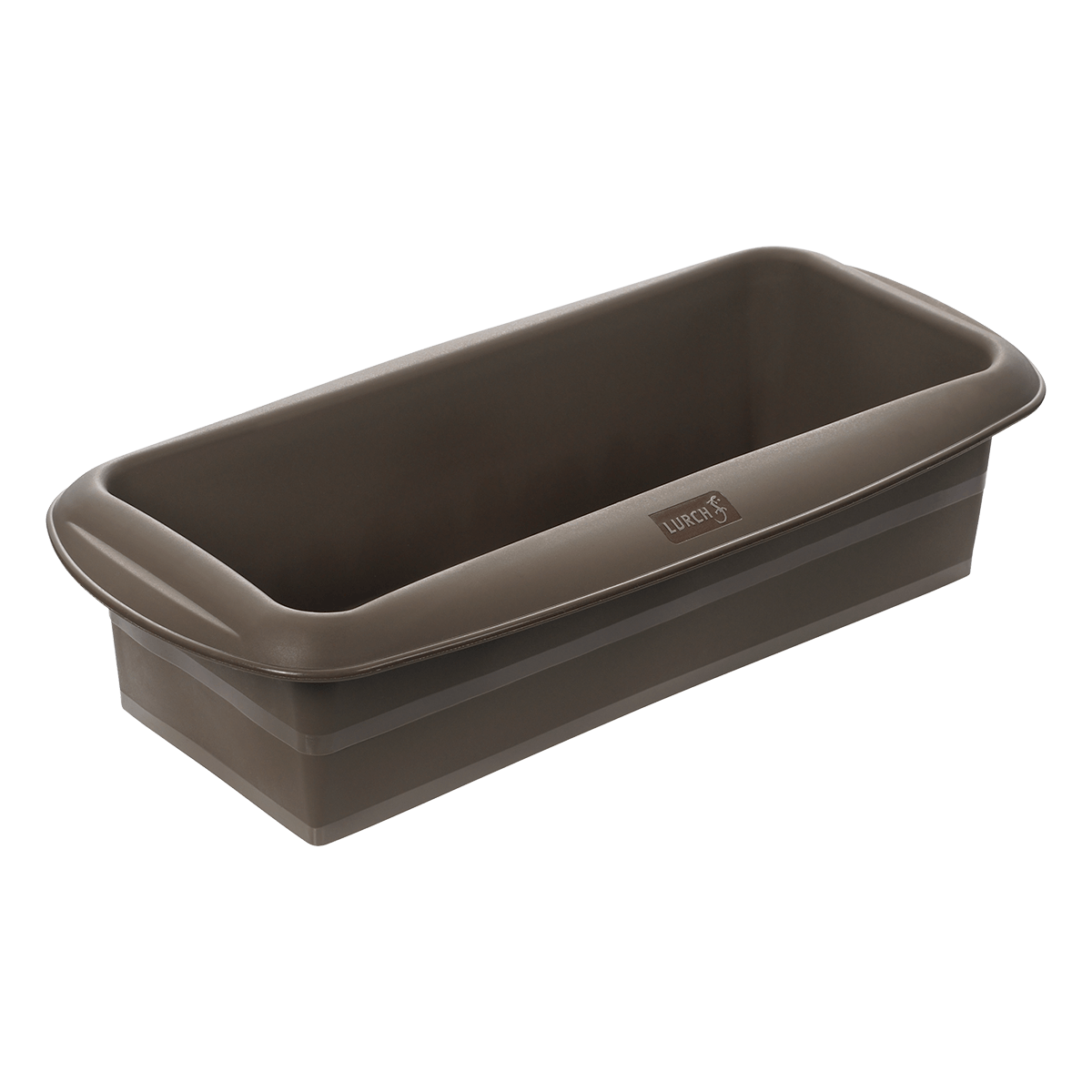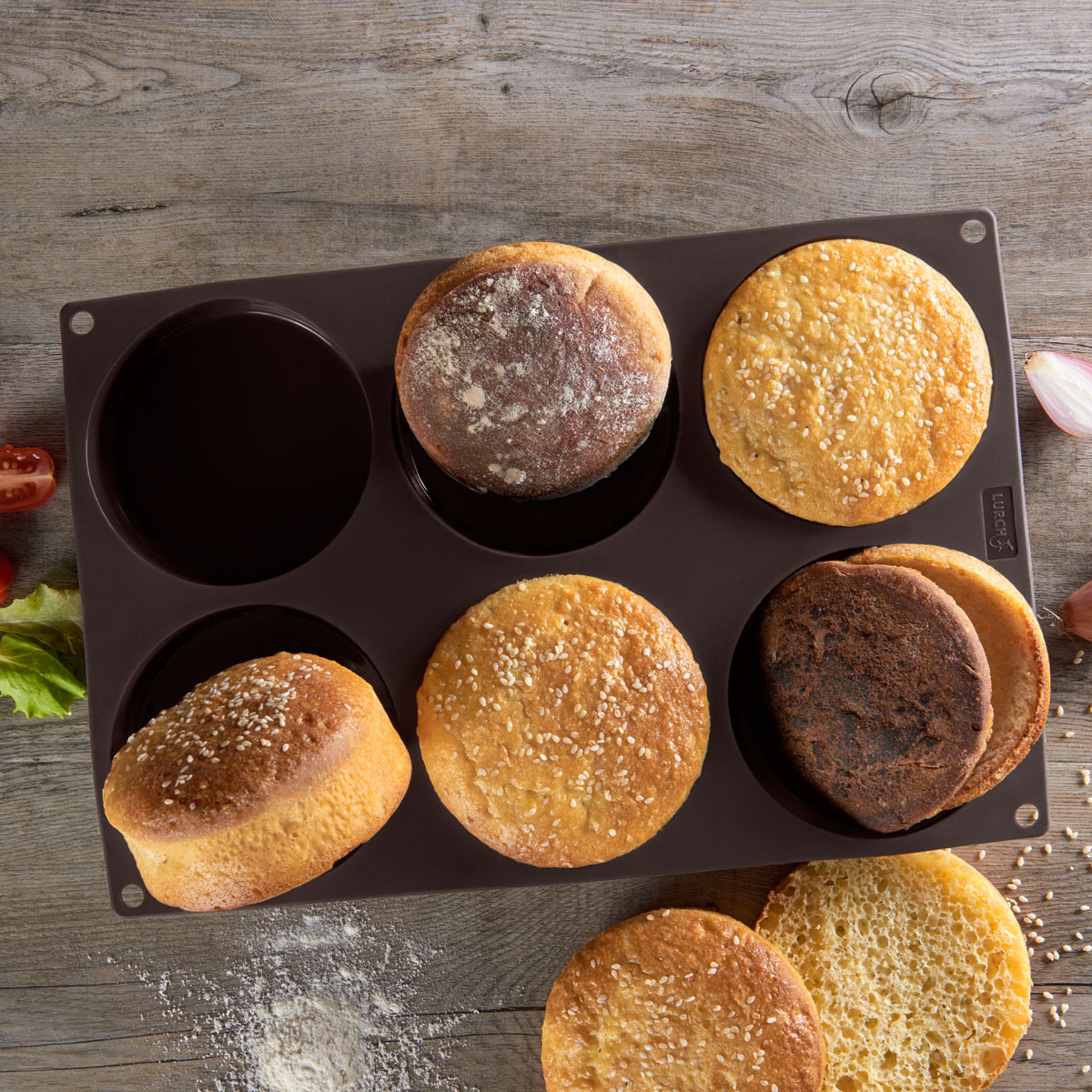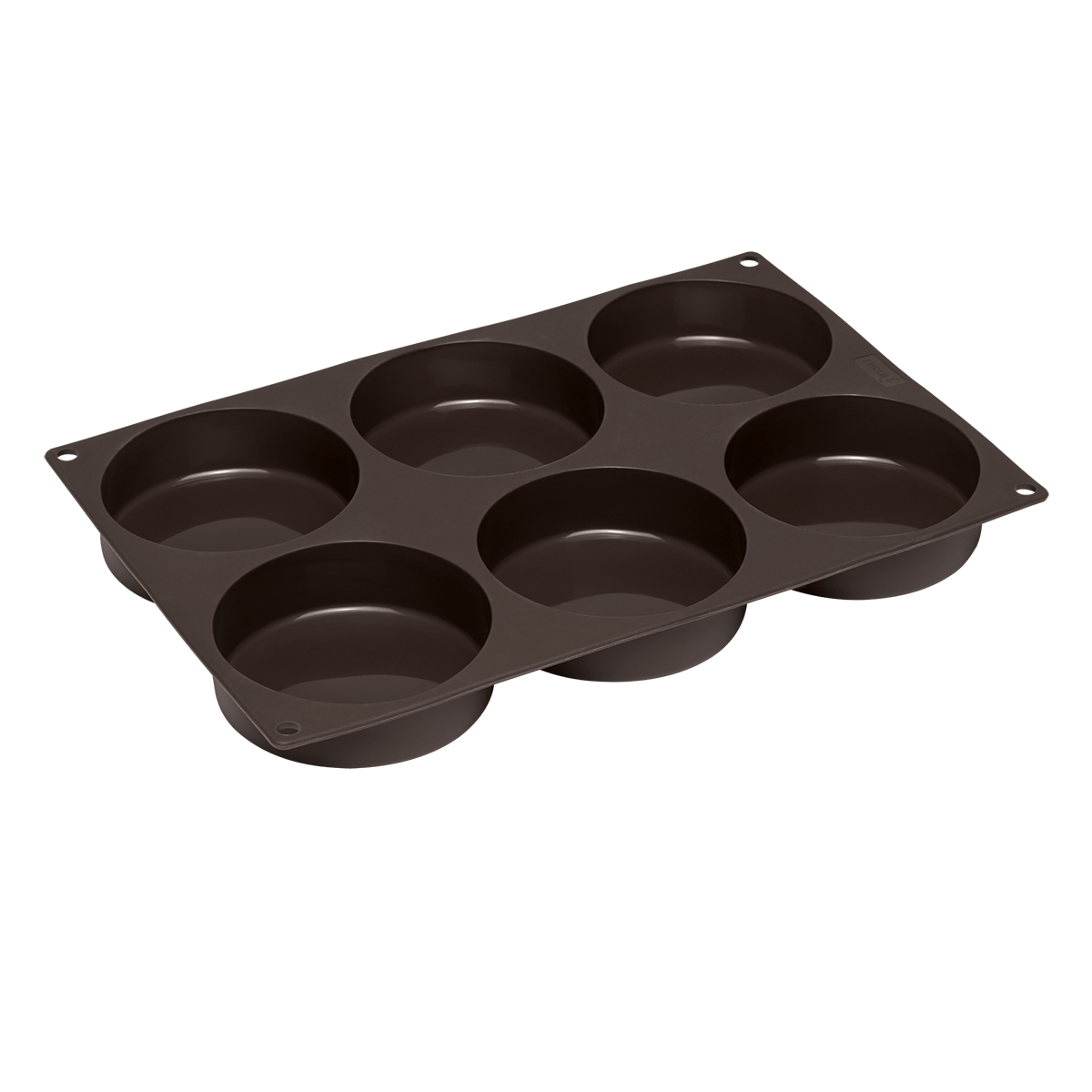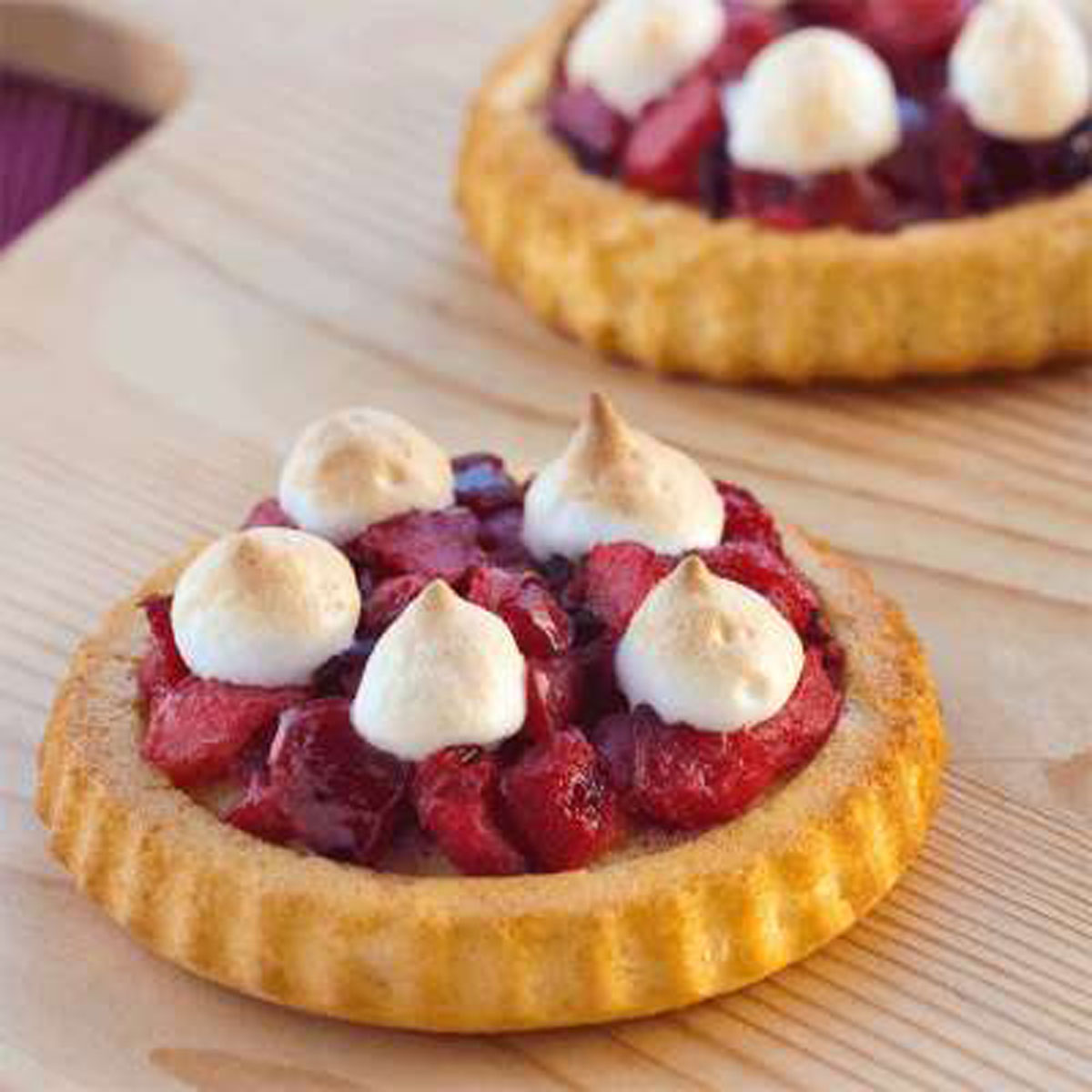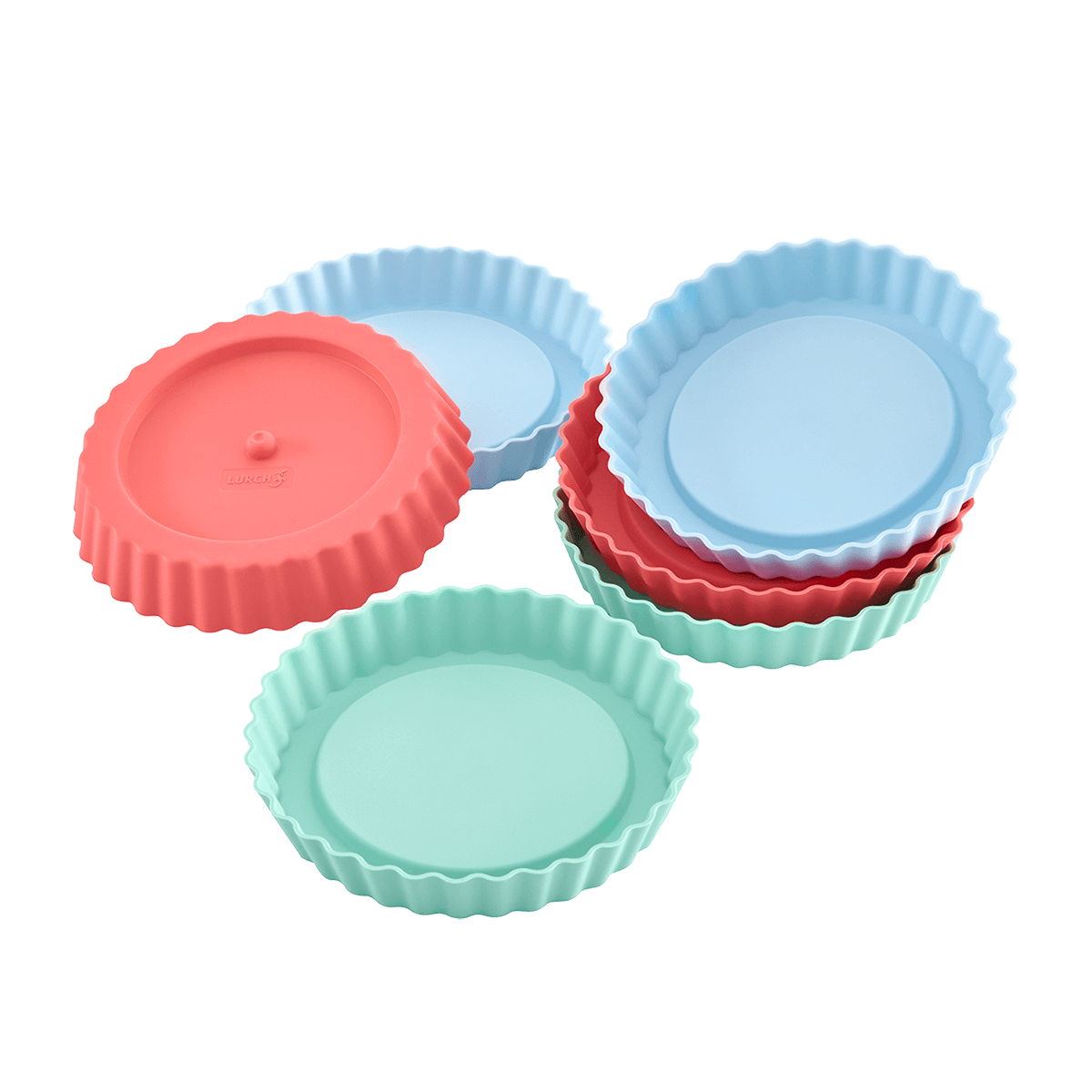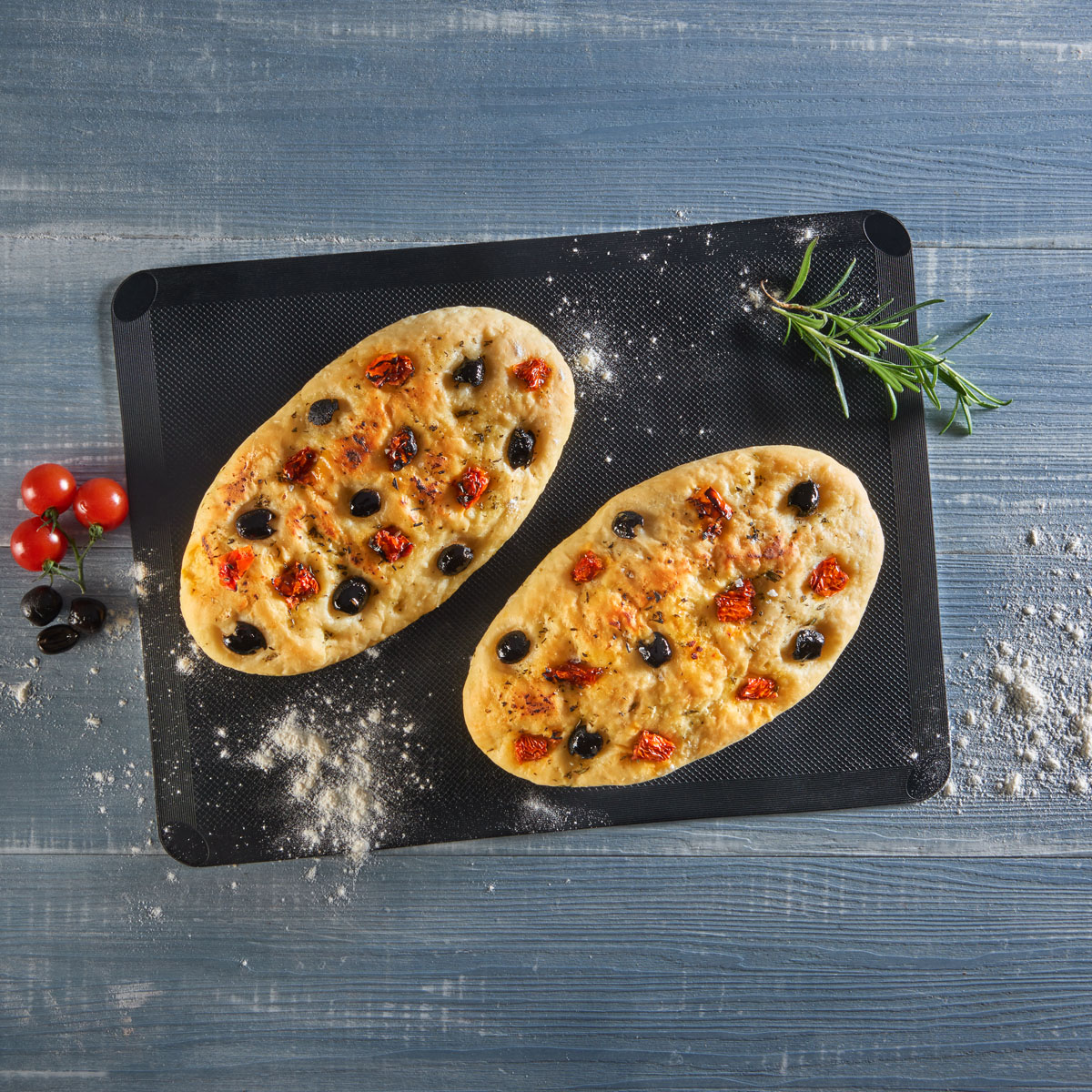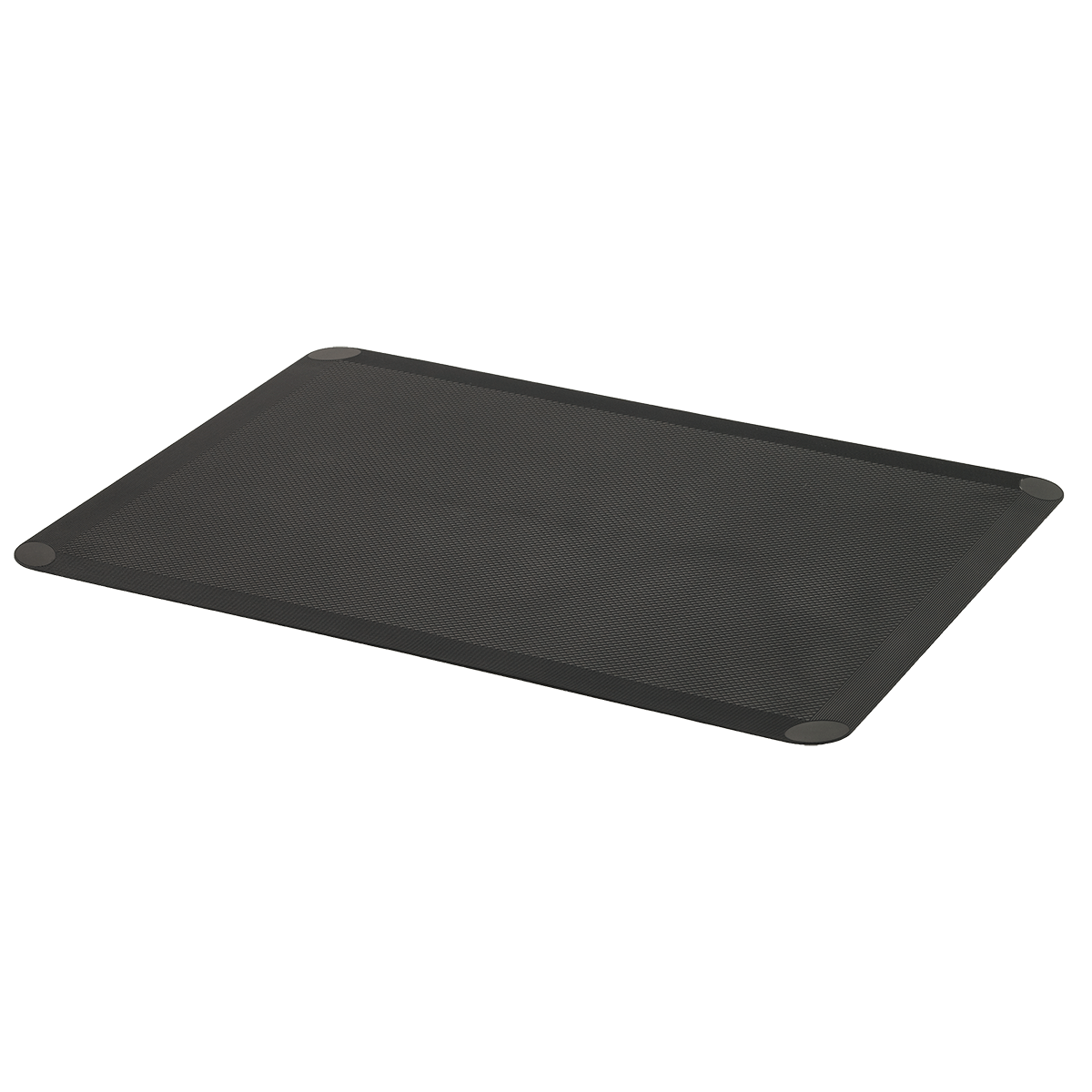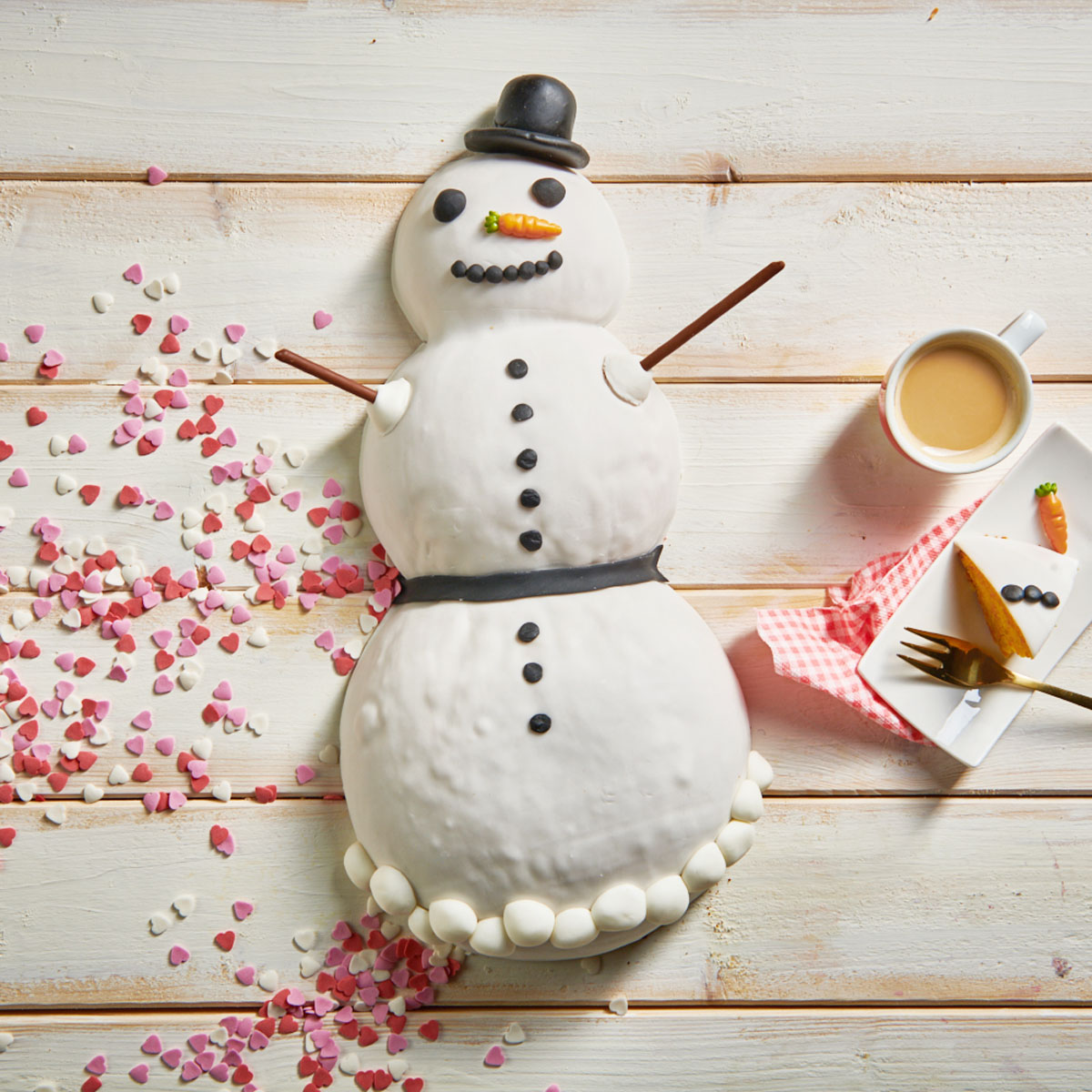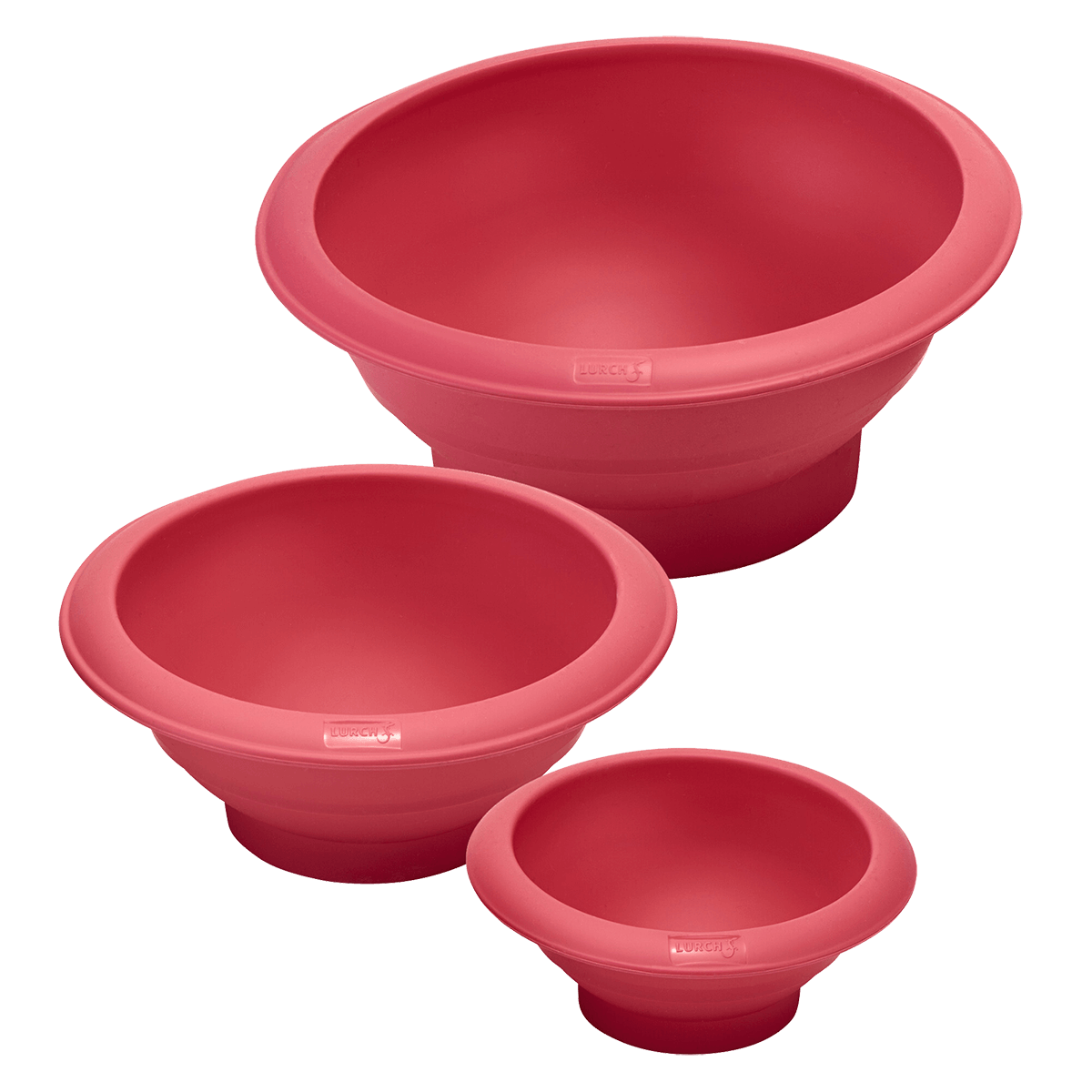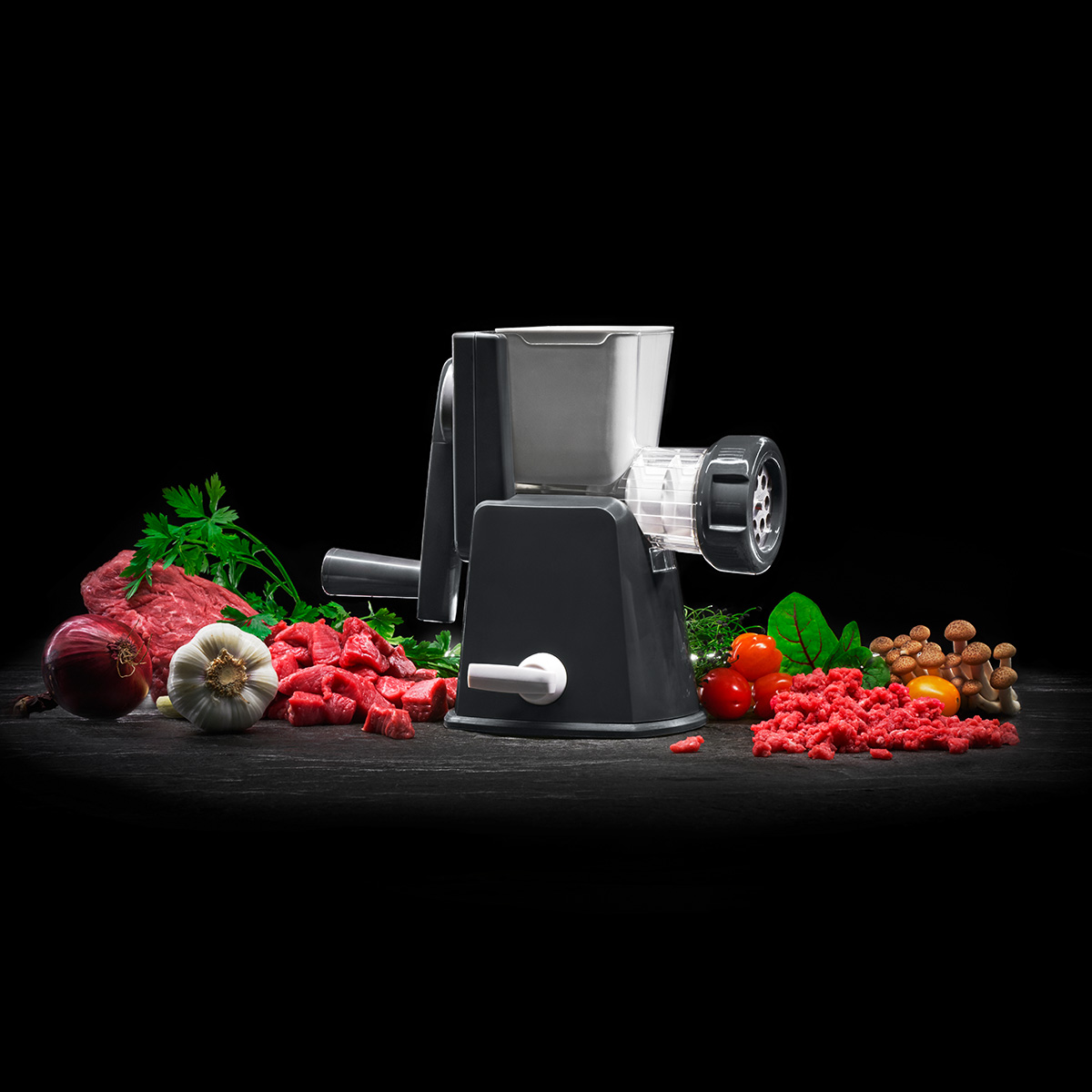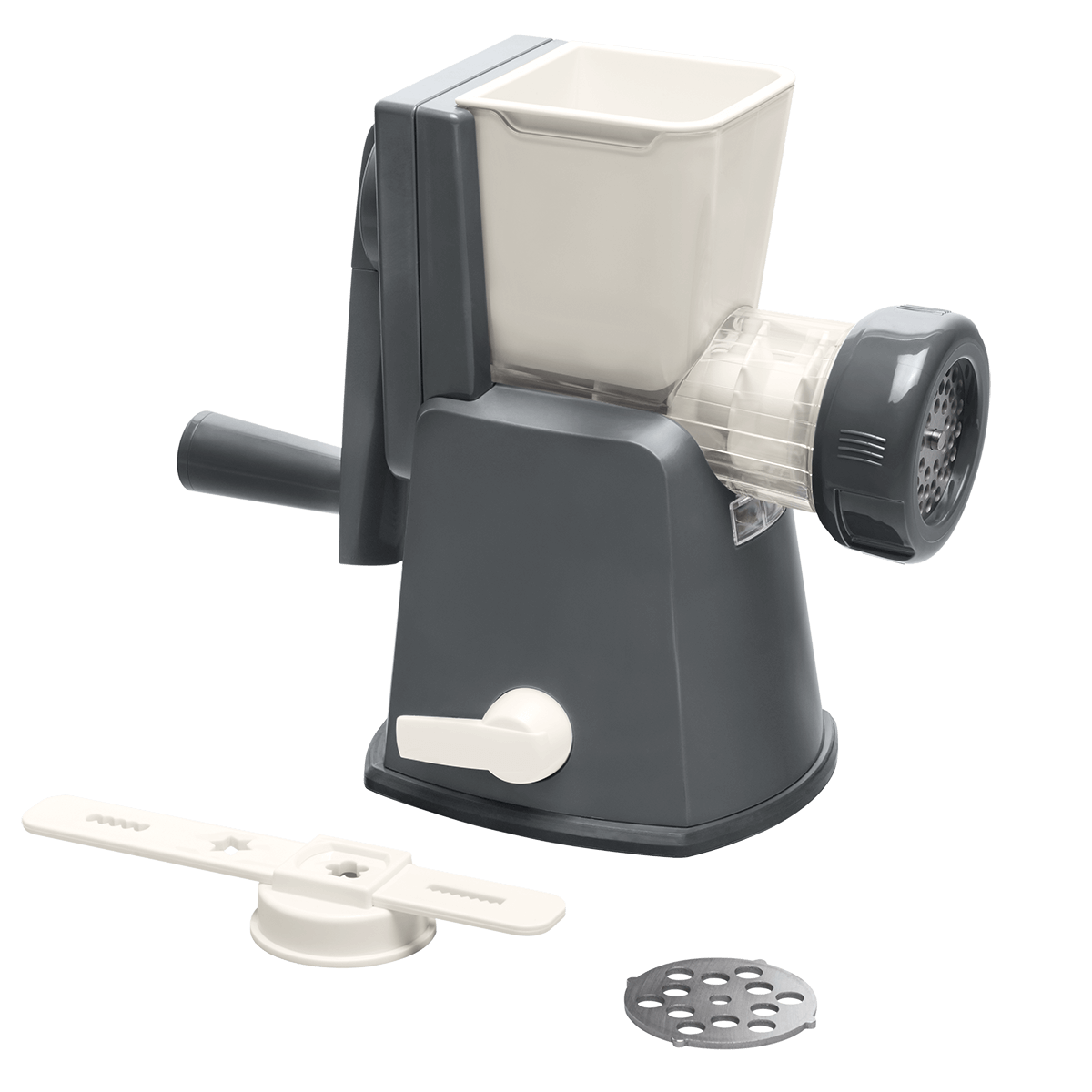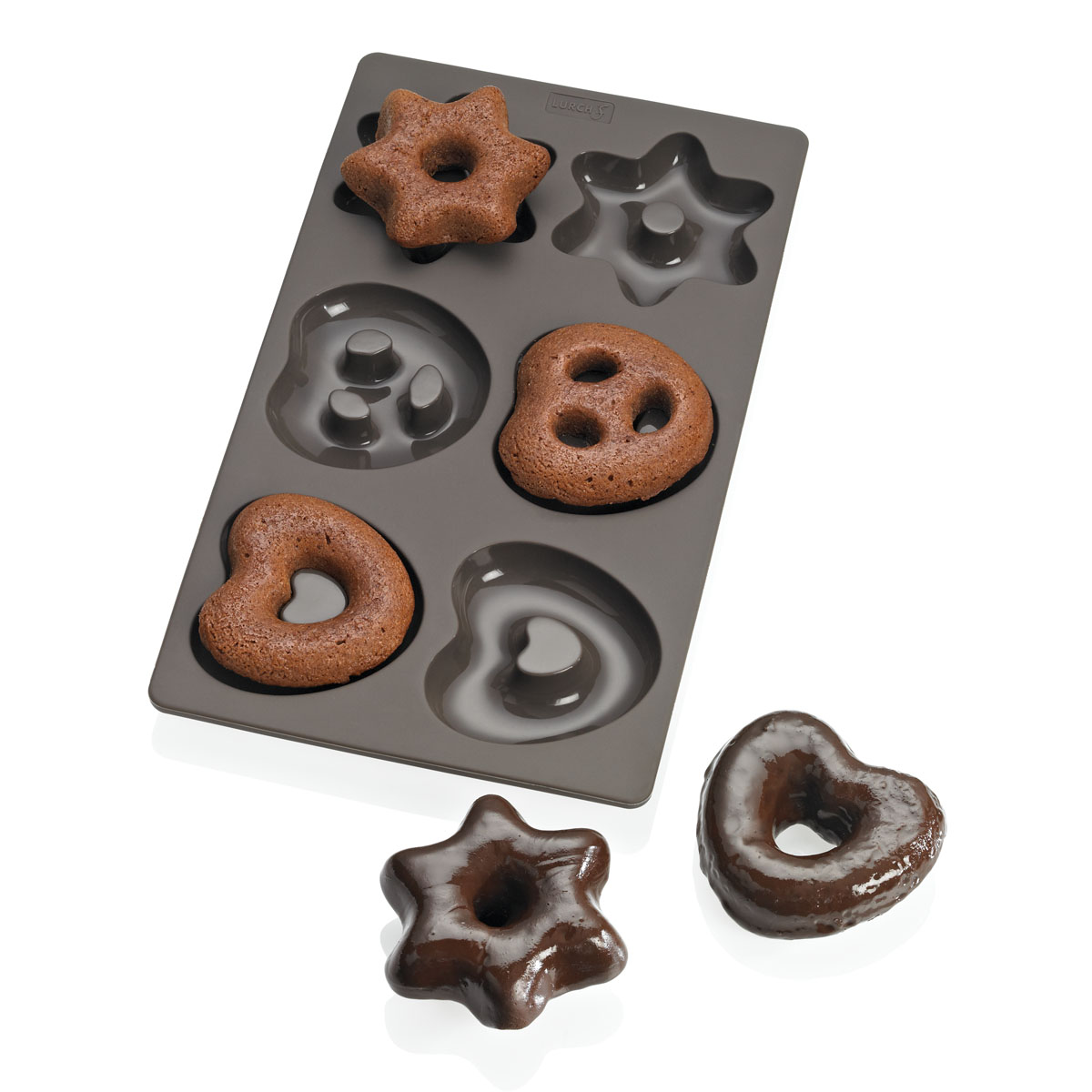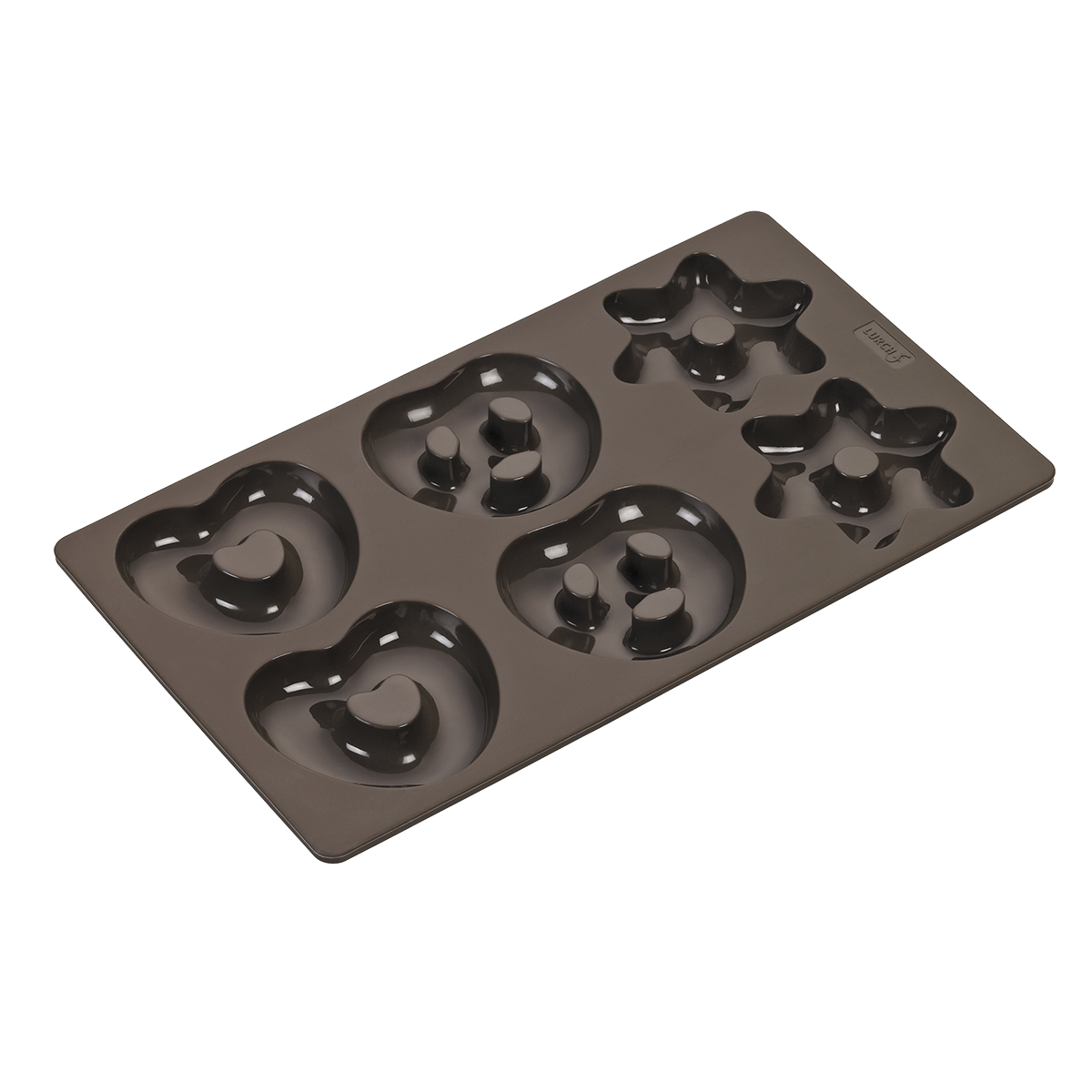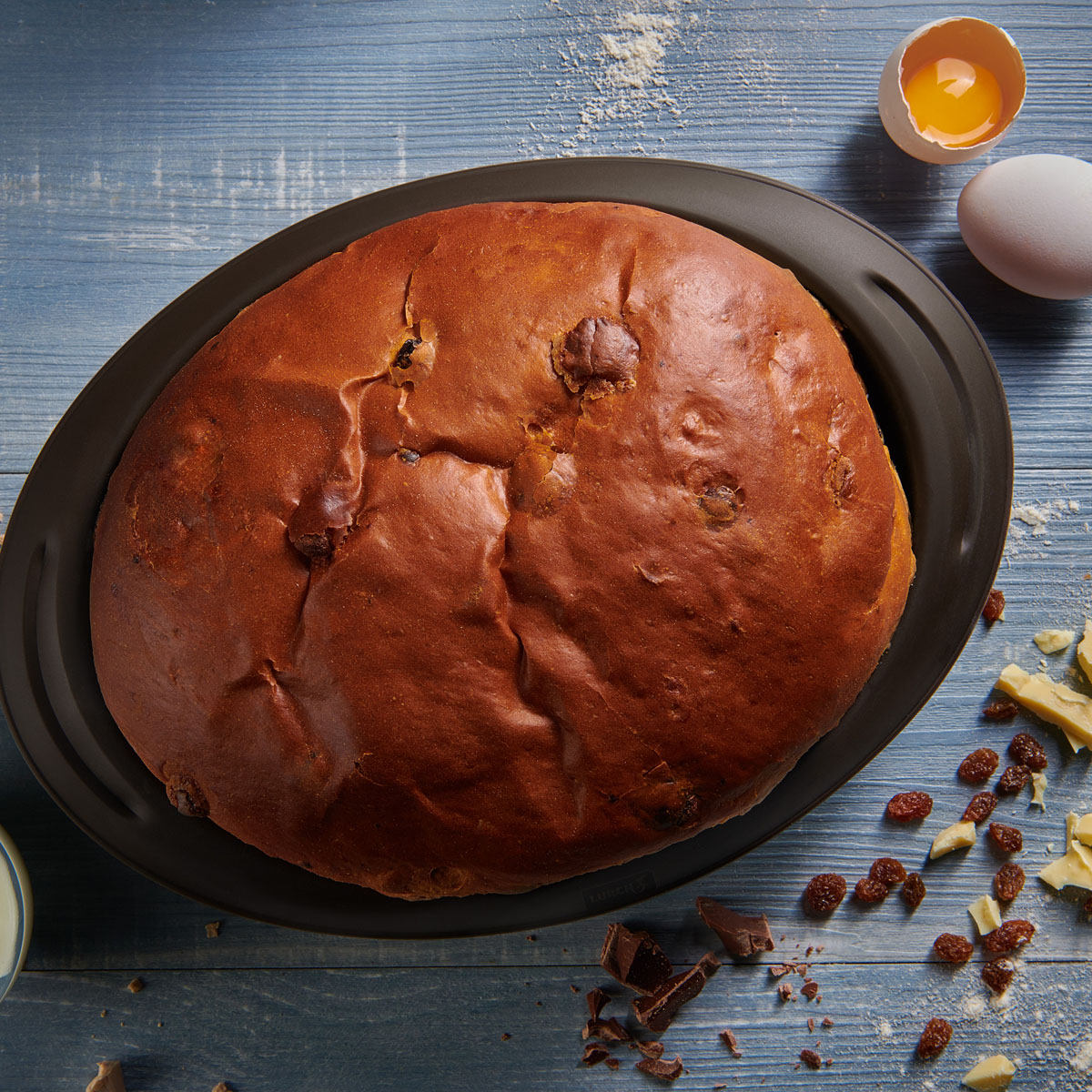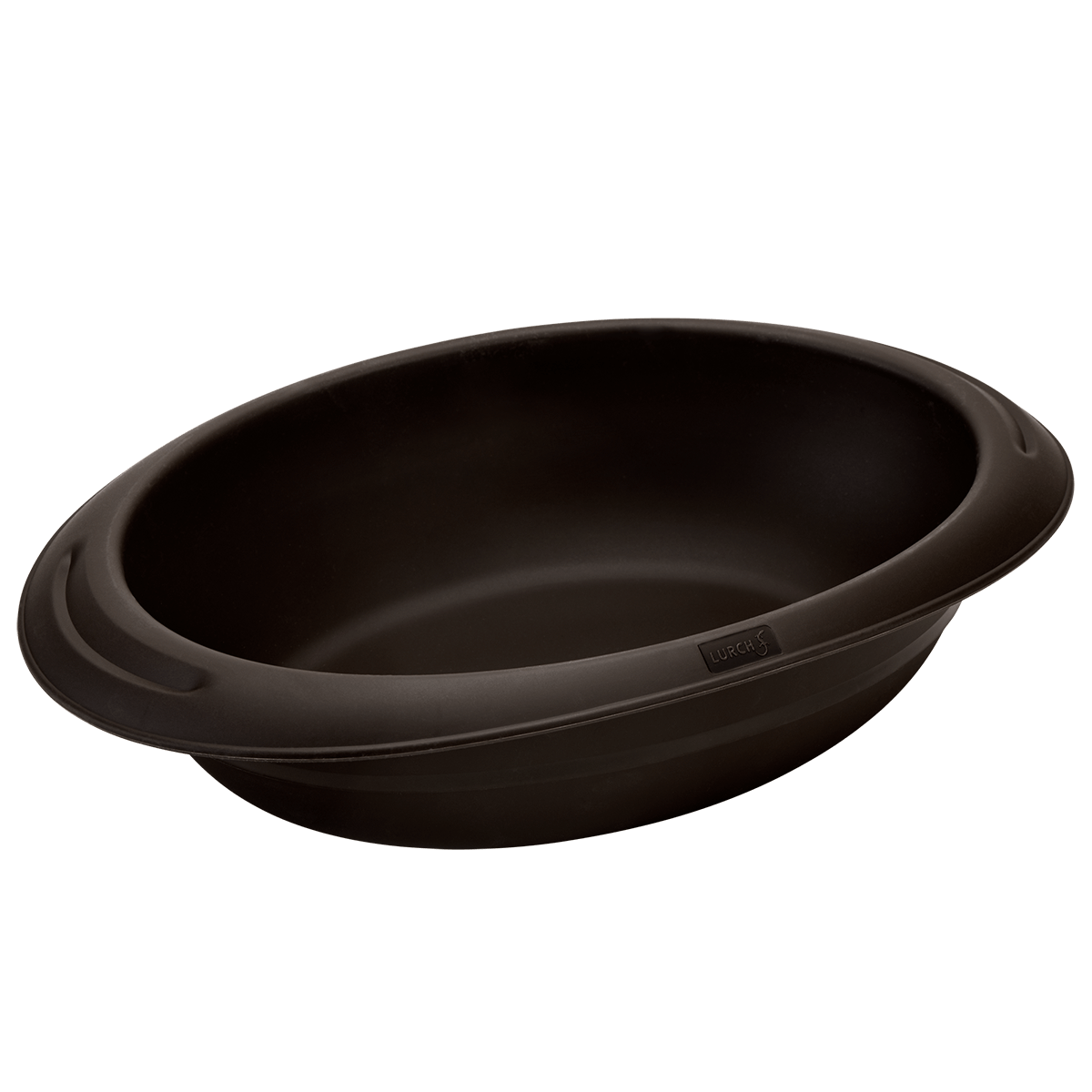What is silicone?
Silicone is an integral part of our everyday lives. It is used in baby products such as dummies and teats, in medicine and in the household. FLEXI®FORM baking moulds and silicone kitchen gadgets such as our SMART TOOLS can be found in many kitchens today. These products are ideal for baking, cooking, simmering and freezing. Silicone itself is extremely flexible, break-resistant and can be stored in a space-saving manner. It is translucent, which allows it to be used in different colours.
Silicone can be described as an extremely versatile material. It belongs to the family of synthetic materials. Its starting material is the element silicon, which is found in sand, clay or other inorganic materials in the form of silicon dioxide and silicates. The silicon is extracted in the blast furnace and then converted into silanes using methyl chloride. Silicones can then be produced from the silanes. Silicone comes in various forms, such as liquids, gels and elastomers. Elastomers are generally used for baking moulds and kitchen utensils.
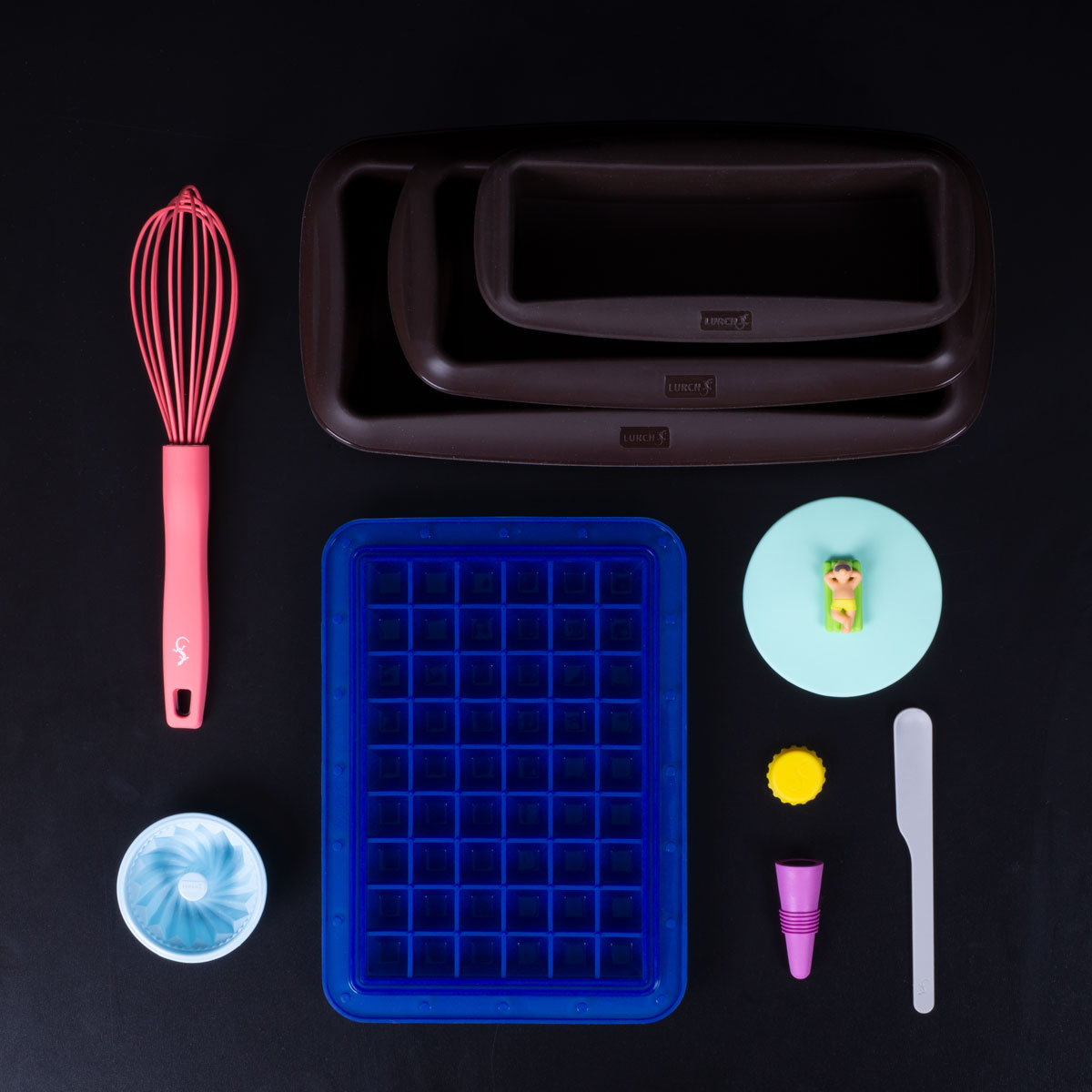
How are silicone moulds made?
The so-called compression moulding process is most commonly used for the production of silicone moulds. In this process, careful processing and thermal post-treatment of the material is of particular importance. After our baking moulds have been produced, they undergo a tempering process lasting at least four hours. This involves heating them side by side at around 200°C in large industrial ovens over an extended period of time. The tempering process ensures that volatile organic components are completely removed. This ensures that our products are food-safe and do not transfer any residues to the food used. The compression moulding process also offers the advantage that we can offer our FLEXI®FORM silicone baking moulds in countless designs and shapes.
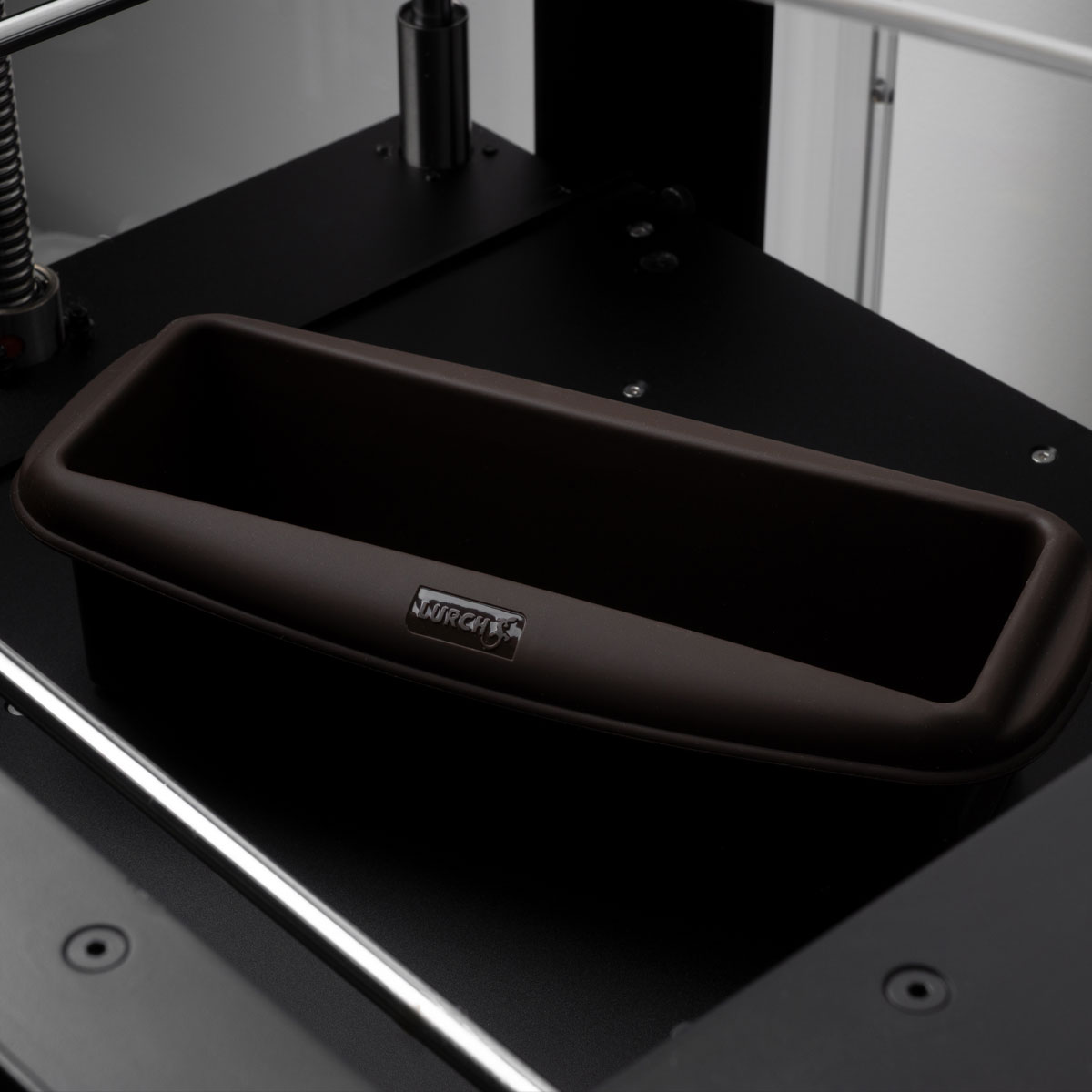
What advantages does LURCH silicone offer?
The use of a catalyst is required during the manufacturing process of silicone products. For our FLEXI®FORM products, we only use platinum catalysts, which accelerate the curing process of the silicone and sustainably improve the overall quality. For this reason, we also refer to our silicone as " Premium-Platinum-Silicone". This compound offers numerous advantages, including remarkable temperature resistance from -40°C to +240°C and ideal energy-conducting properties due to the solid material.
Our silicone is resistant to fruit acids and sourdough, which considerably expands the range of baking options. Our products are extremely versatile, whether for baking or freezing food. It not only makes it easy to make ice cream, cakes or bread, but can also be used in the microwave.
FLEXI®FORM products are characterised by their purity and are absolutely odourless and tasteless. They are free from BPA, PTFE and PFAS and fulfil all food regulations. Silicone is an open-pored material that has excellent non-stick properties even without a coating. This makes it easy to remove bread, cakes and pastries.
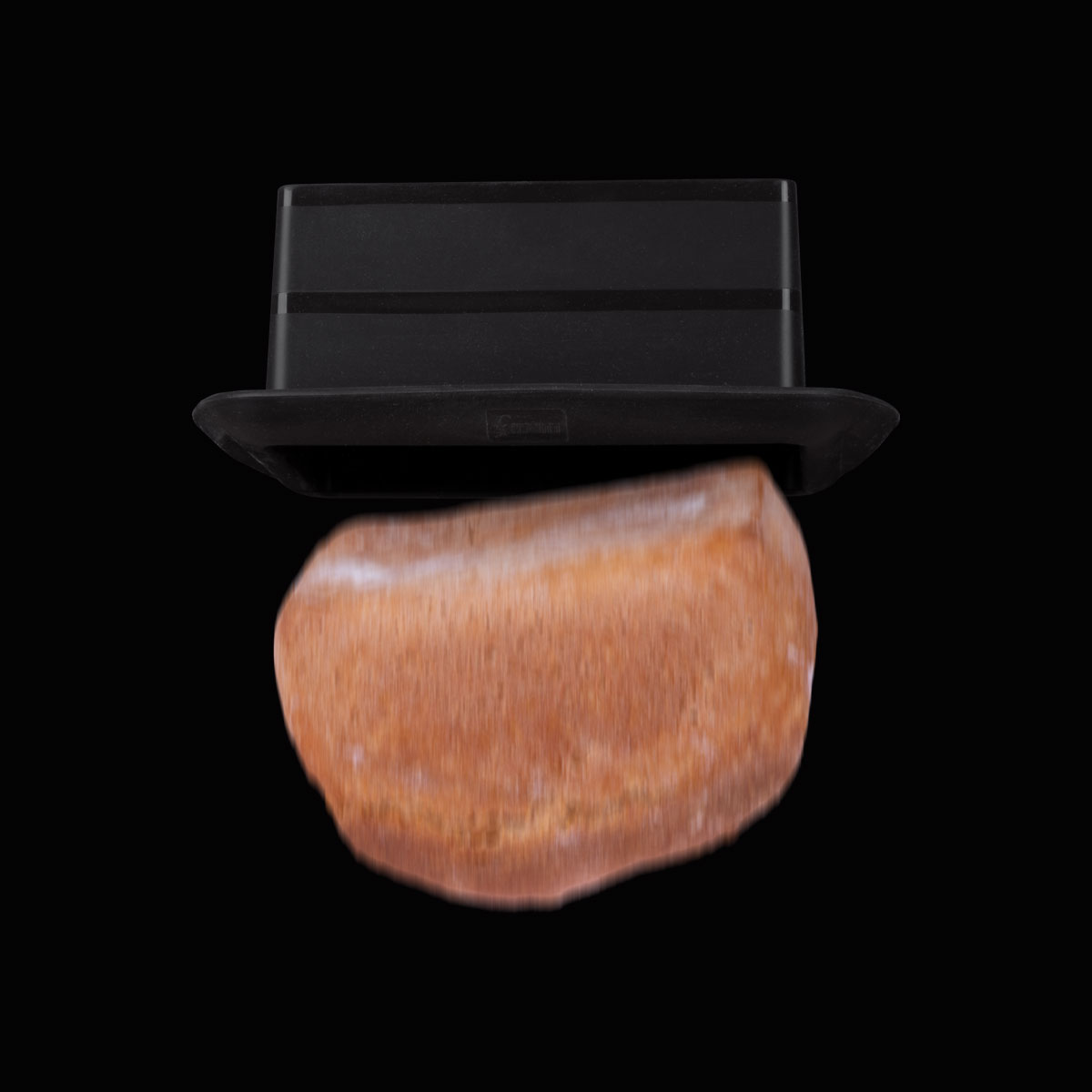
Does a silicone baking mould need to be greased?
When using the baking mould for the first time, you are welcome to grease it - but this is not absolutely necessary. The open-pored structure of the silicone allows grease to be absorbed on the surface, creating a natural non-stick coating. Ingeniously simple.
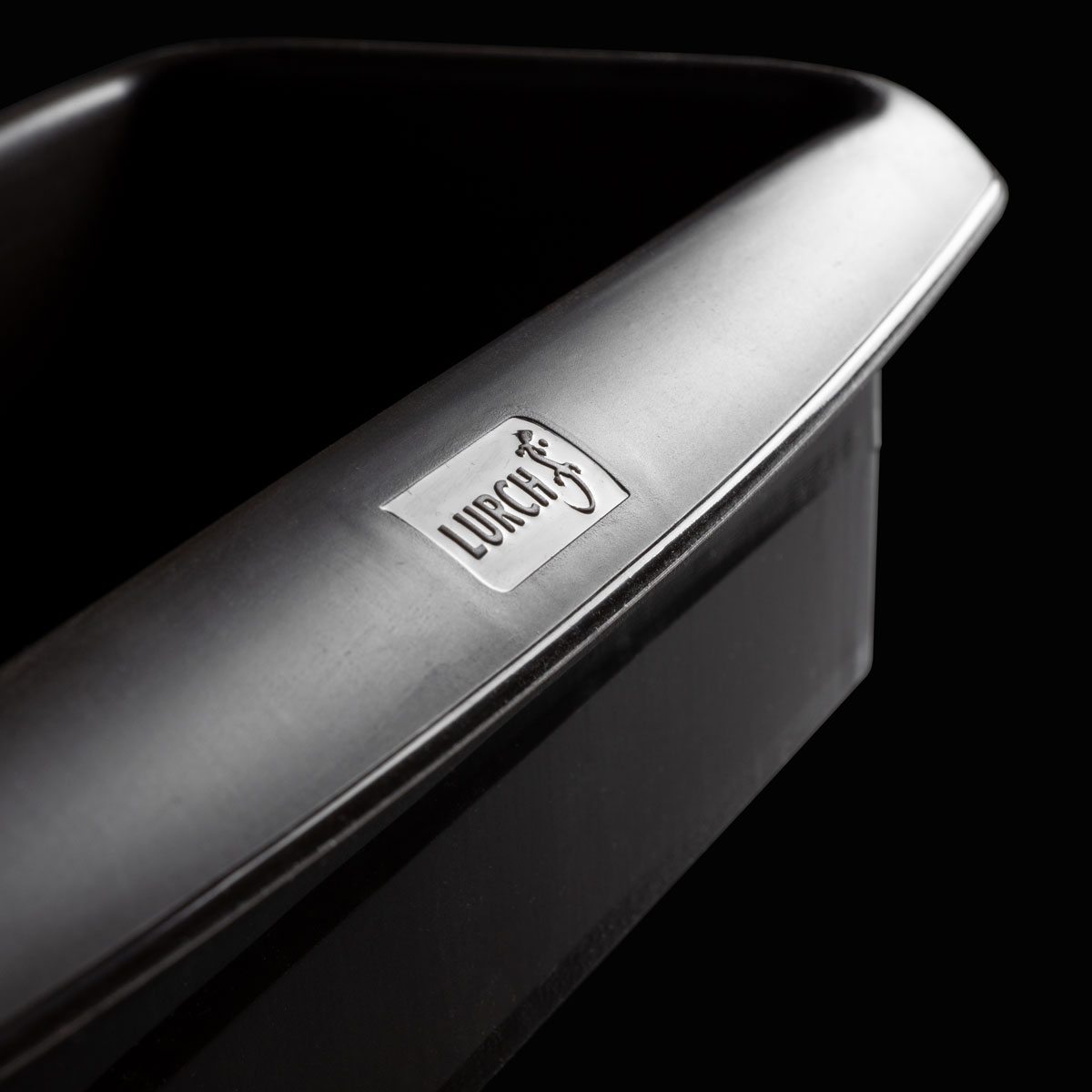
What harms silicone?
Silicone products should generally never be worked on with sharp utensils such as knives etc.. Silicone should also not come into direct contact with hot surfaces such as hobs or open fires. Olive oil should be used in limited quantities, as oil can be heated to more than 240°C.
In summary, it can be said that excessively high temperatures can affect the longevity of silicone baking moulds.
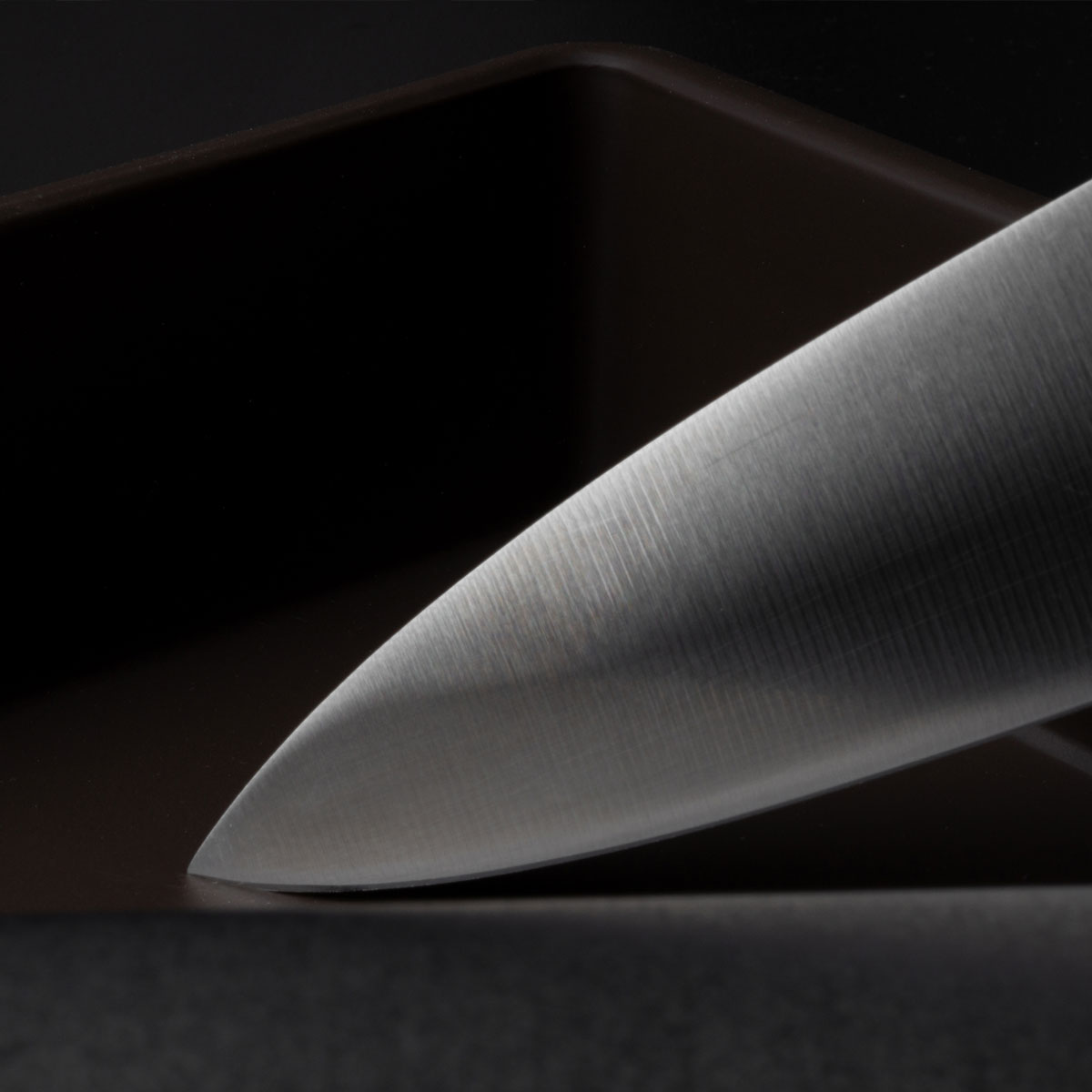
What are the disadvantages of silicone?
Disadvantages of silicone are often mentioned in connection with material quality and stability. Cheap silicone products are often not dimensionally stable and can have a chemical odour. In contrast, our high-quality FLEXI®FORM baking moulds are designed to be stable and have a strong material thickness. They are also manufactured in a controlled and correct production process in order to be food-safe.
Note: It is worth mentioning at this point that silicone baking moulds and some kitchen utensils become "greasy" over time because they absorb fat from the ambient air. This is completely normal and absolutely harmless. The traces of grease can be easily removed with hot water and a little washing-up liquid. The dishwasher can of course also be used for cleaning.
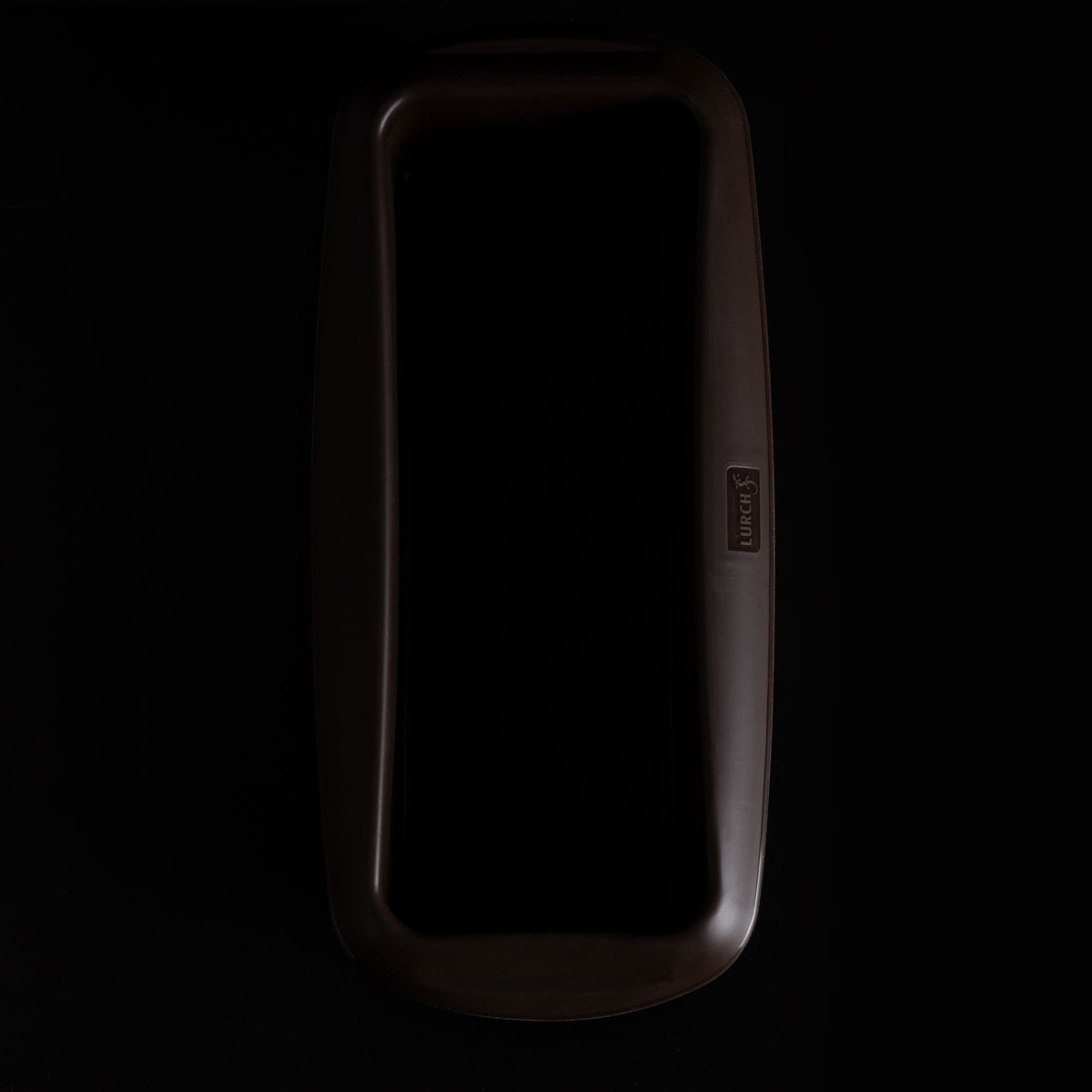
Tips, tricks and care of silicone moulds
The silicone mould should be rinsed with a little hot water before use. After baking, it is a good idea to remove the mould from the oven and leave it to cool for a few minutes. This makes it much easier to remove the baked goods. All FLEXI®FORM baking moulds and silicone kitchen utensils can be cleaned in the dishwasher or by hand with a little washing-up liquid. The use of metal sponges or harsh cleaning agents is not recommended as they can damage the surface.
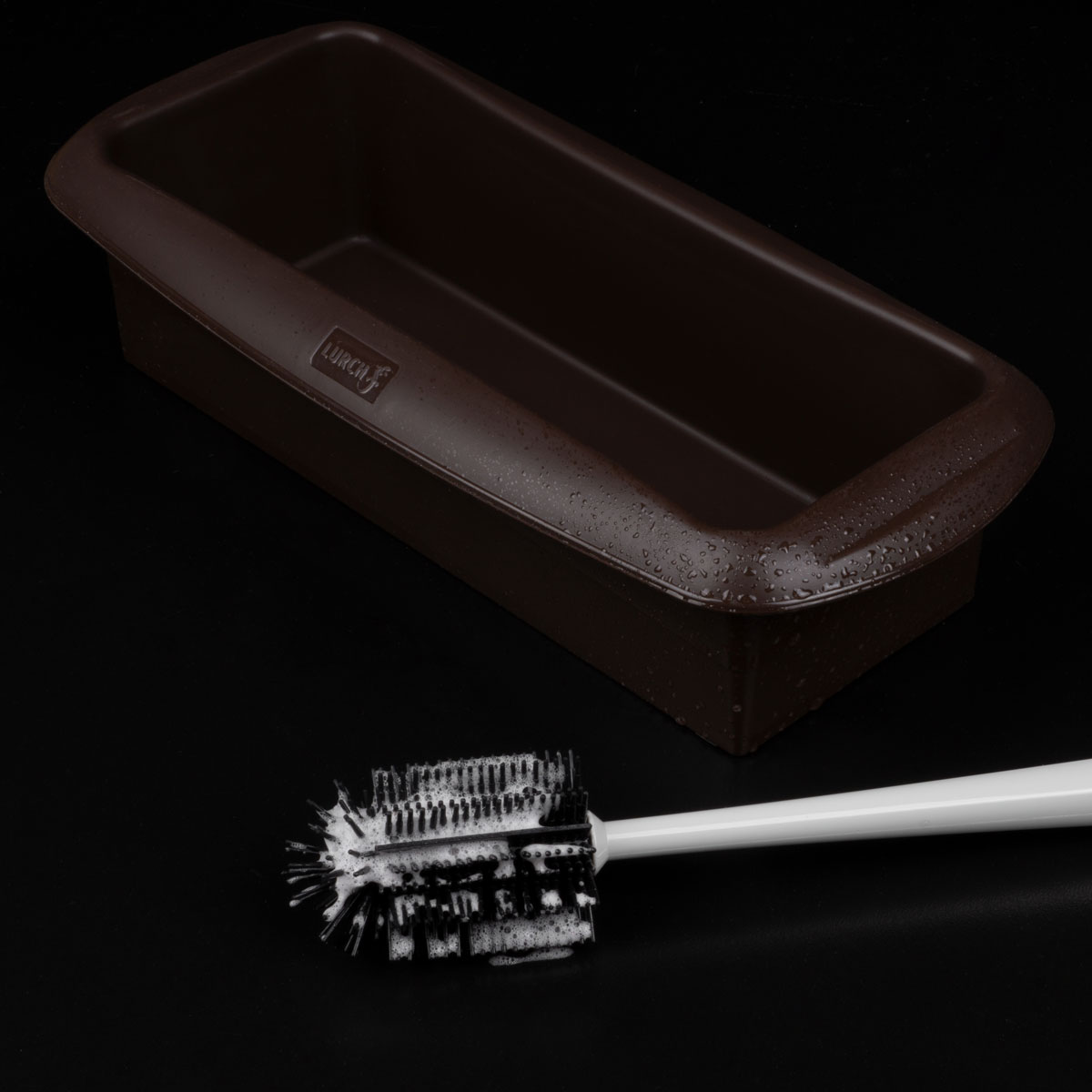
The unique FLEXI®FORM properties
Original FLEXI®FORM is still unrivalled in terms of function and quality - and impresses with the following outstanding properties:
Perfect baking results • Resistant to fruit acids and sourdough • Non-stick (without coating • Heat-resistant up to +240°C • Cold-resistant down to -40°C • Food-safe and tasteless • Free from BPA, PTFE and PFAS • Up to 15-year guarantee • Ideal energy properties • Space-saving storage • Easy to clean • Dishwasher-safe • No denting
